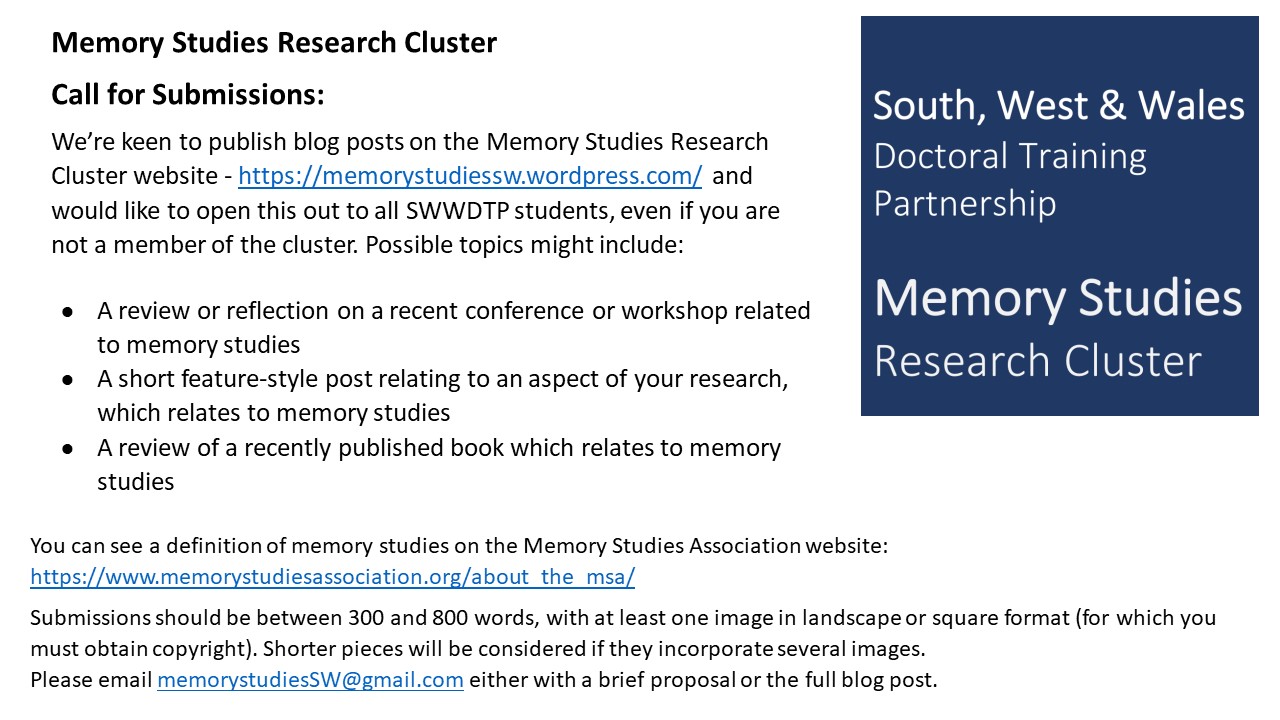Please Note: Due to the Covid-19 pandemic this event has been postponed until 2021, date TBC. We will send out a new call for papers once we have a new date planned. Thank you to all who have already submitted proposals or abstracts, these will still be considered.
CALL FOR PAPERS:
Memory, Accountability and Representations of the Past – An Interdisciplinary Symposium
Debates on what and how we remember, and who decides the form these memories take, are widespread. Even within “Memory studies” as a field, there are multiple perspectives which can frame understanding.
Scholar and critic Andreas Huyssen states: “Rep-presentation always comes after, even though some media will try to provide us with the delusion of pure presence.” In our digital age, the “immediate, abundant, pervasive, perhaps overwhelming, and apparently accessible” (Hoskins, 2017) form of new media shape the past’s representations. Memory, in its pluralities, can challenge historical master narratives of history and is one way in which society can demand accountability in the present and for the future.
In her seminal essay “Can the subaltern speak?”, Gayatri Chakravorty Spivak concluded that the historically marginalised and oppressed “cannot speak” (1988). Spaces are opening, however, which attempt to promote new ways of thinking about the past in practice and theory. They forefront occluded, excluded and repressed histories and are central to demands to decolonise public spaces, museums and other institutions.
The Memory Studies Research Cluster, a cross-disciplinary research cluster of the South West and Wales Doctoral Training Partnership, is inviting submissions for 20-minute papers, presentations, talks and workshops which critically examine our themes of memory, accountability and representations of the past. We encourage submissions from those working in, but not restricted to, the following areas: history; anthropology; film studies; fine-art practice; literature; museology; postcolonial studies; photography; sociology; translation; visual cultures; and human rights. We would also like to hear from those not working in academia, including artists, writers, museum professionals and community activists.
We invite submissions on the following themes:
- Re-thinking representations or interpretations of the past
- Occluded, excluded, forgotten or repressed histories
- Decolonisation in public spaces e.g. museums, art or literature
- Memorialisation and accountability in urban spaces or the physical environment
- Memorialisation and accountability in digital spaces or visual culture
- Postcolonialism and representation
Please send abstracts/proposals (max. 200 words) along with a short bio (max. 100 words) to memorystudiesSW@gmail.com Please note: we are currently awaiting plans for a new date, and will update this page as soon as we have any information.

